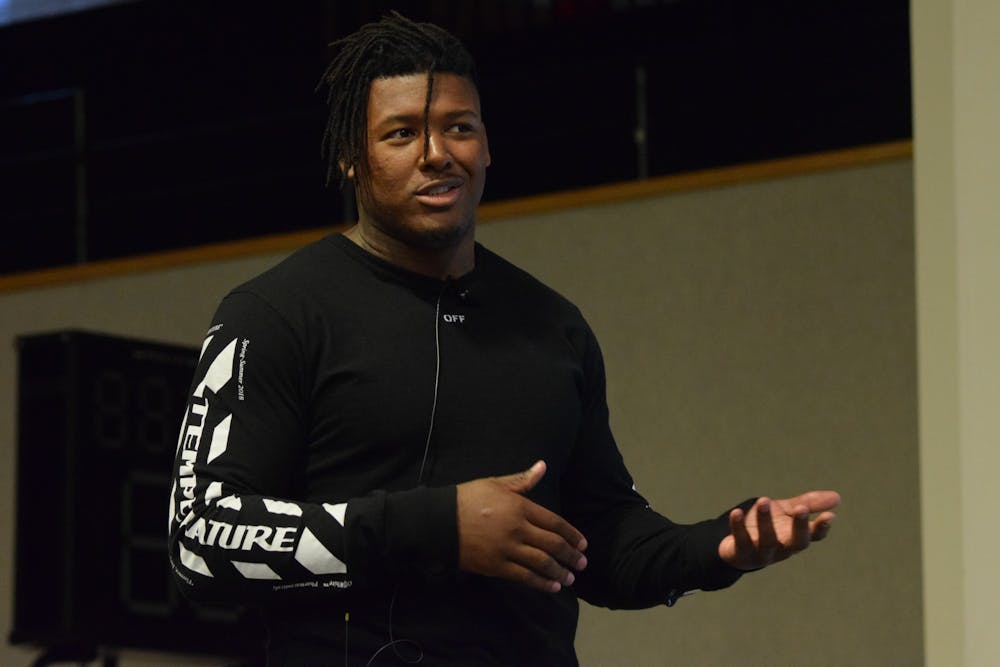After a year of planning, senior Tim Boles saw his idea come to life: The Men’s Leadership for Gender Equity Conference.
On March 1, students, staff, faculty and community members were able to attend a keynote speech and breakout sessions dedicated to masculinity and male engagement toward gender equity on campus. The event, hosted by the Gender & LGBTQIA Center (GLC), the Interfraternity Council and Student Government Association, is Boles’ common good project — a requirement of all leadership fellows.
The human service studies major began working with Becca Bishopric Patterson, assistant director of the gender and LGBTQIA center, last year to plan the conference.
“It's very exciting to see what kind of started off as a small, little, brain-child moment and watch it grow and transition and really adapt to the voices on campus,” Boles said.
To kick off the conference, former NFL player Ryan Russell delivered the keynote speech. Russell was the first openly LGBTQ+ professional athlete to play in the NFL. Afterwards, participants were able to attend sessions led by students and faculty.
CJ Porterfield, an Elon senior, is a student assistant for the GLC. For the conference, Porterfield coordinated logistics and gave a two-part presentation on LGBTQIA allyship. Porterfield said the conference made sure that there was “a space where men can openly talk” and learn more about their role in society.
“Just being able to communicate more and taking steps towards becoming a better human being,” Porterfield said. “And no longer feeling trapped by expectations on who you can be, and just focus on how you want to be.”
In addition to the themes of allyship and masculinity, there were also presentations on mentorship and relationships. Kate Lengyel, a sophmore GLC student assistant, gave presentations on transgender allyship and consensual sex.
“I really hope that [male students] feel more comfortable discussing things with each other. I think communication is really key,” Lengyel said.
Harry Titus, assistant director of student care and outreach, thinks that the conference is “a really great direction to begin to really open up that line of communication for our men and women on our campus.” Titus said he hopes students will continue the conversation beyond the conference.
“I hope they don't stop the conversation,” Titus said. “Intervene when they are noticing that things aren't right, and are more open and honest with their friends in spaces that maybe they are usually more sheltered, or they're not comfortable enough to have the conversation.”


